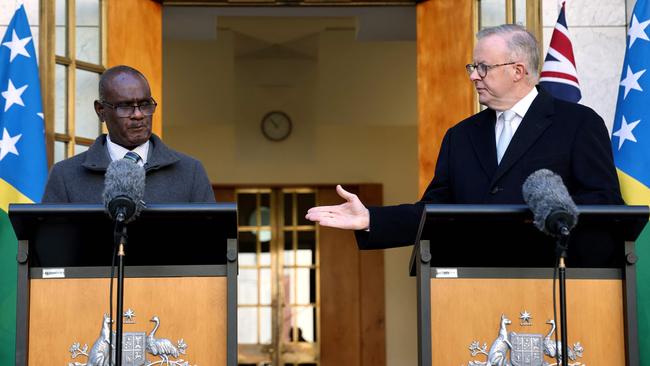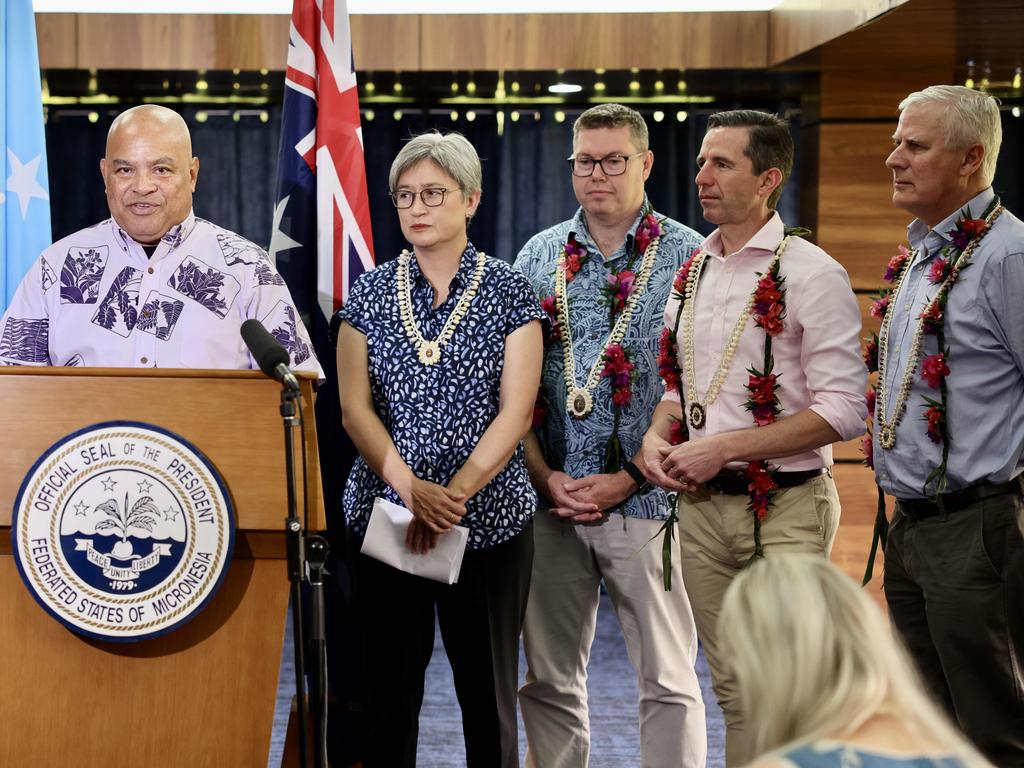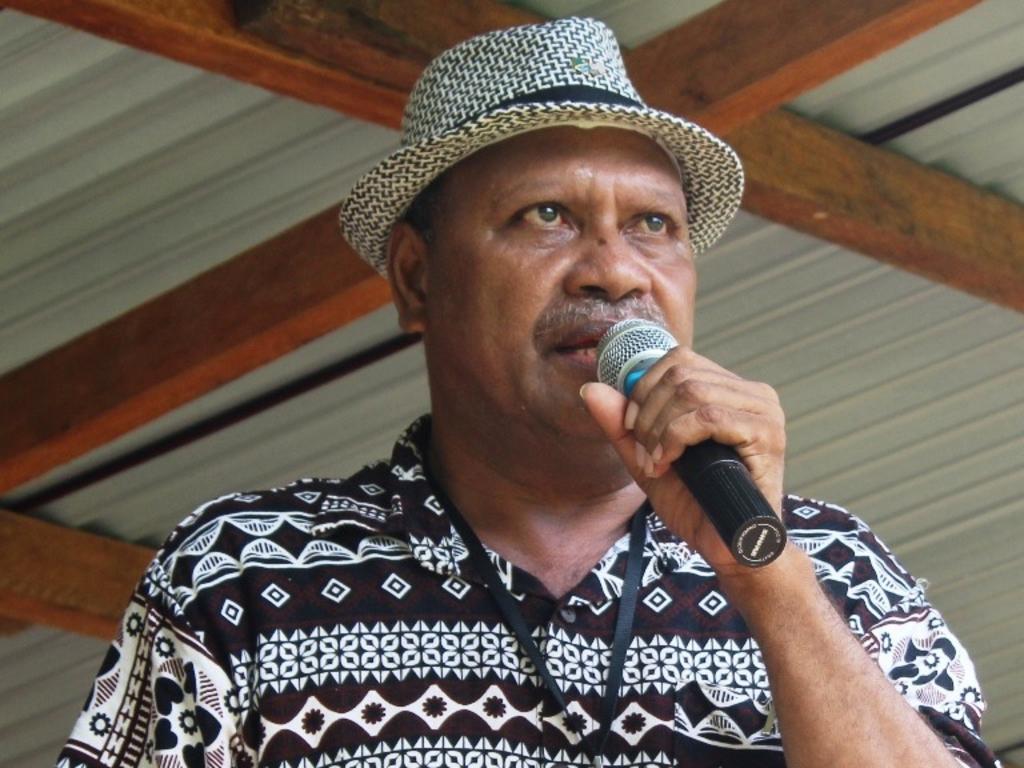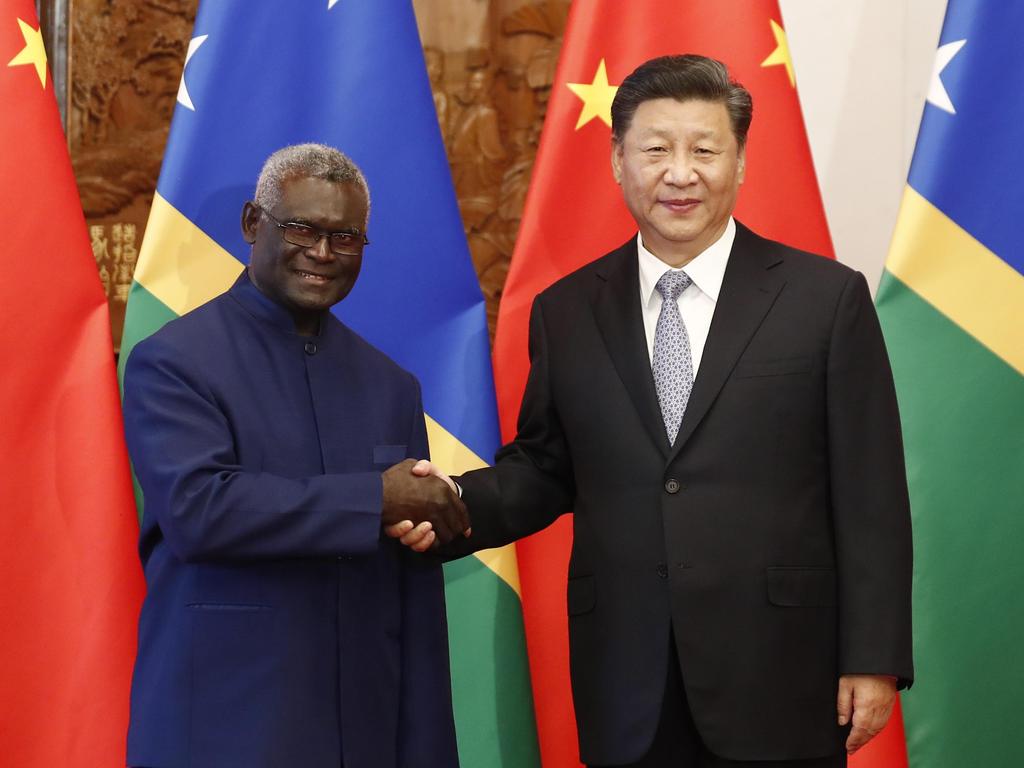China to stay in Solomons despite new deal with Australia
Chinese forces will not be required to leave the Solomon Islands as part of a new security arrangement agreed to by Anthony Albanese and Solomons leader Jeremiah Manele.

Chinese forces will not be required to leave the Solomon Islands as part of a new security arrangement agreed to by Anthony Albanese and Solomons leader Jeremiah Manele, with the deal struck between Canberra and Honiara on Friday to exist side-by-side the Pacific island nation’s controversial pact with Beijing.
The agreement has been described by experts as falling short of what the government would “ideally” like to see – chiefly the end of a Chinese presence on the Solomon Islands – but as being likely to bring Chinese influence to “a stand still” and stop any further growth of its security arrangements with Honiara.
In response to a request from the Solomon Islands, the Prime Minister announced Australia would pump $190m into a pact with the Solomon Islands to bolster the nation’s police force and provide Canberra’s Pacific neighbour with a sovereign security capability that would reduce “reliance on external partners over time”.
Mr Albanese revealed the $190m package, to be delivered over four years, would improve funding, training and infrastructure support to grow the Royal Solomon Islands force “in a sustainable manner”.
“It includes budget, training and infrastructure, including a police training centre in Honiara and it follows the opening just a couple of weeks ago of the Pacific Policing Initiative,” he said.
“They are increasing … the number of people in the police force but most importantly as well, they are improving on what they can do so it is about not just numbers here, it is about the capacity of the police force to provide security. What that does is reduce any need for outside support.”
But when asked on the 14 Chinese police officers currently in the Solomon Islands as part of the permanent rotating presence agreed to by Beijing and Honiara in 2022, Mr Albanese would not say whether Australia had an expectation that the Chinese forces would now pull out.
“We have agreements with the Solomon Islands and part of that is making sure that Australia remains the security partner of choice,” he said.
The Australian understands that while Canberra is concerned about the presence of Beijing in the Solomon Islands and throughout the Pacific, the government acknowledges the question of the enduring presence of Chinese police officers is a “sovereign decision” of Honiara.
However, as part of the bilateral security dialogue between Australia and the Solomon Islands next year, further discussions on the foreign police force and Australia’s expectations going forward are expected.
Former high commissioner to the Solomon Islands James Batley said there was “clearly no formal undertaking from the Solomons in relation to its activities with China”.
“Ideally, Australia would like to roll back any security involvement between the Solomon Islands and China,” he said.
“But I think they are going to have to settle for a ‘stand still’ if I could put it that way.”
Mr Albanese said he was focused on improving the relationship with “the Pacific family”.
“(The relationship) was at a very low ebb in 2022. Part of that was just alienation that our Pacific Island neighbours felt from Australia’s policy on climate, our policy on foreign relations and the way that we dealt with our fellow members of the Pacific family,” he said.
“My government is proud to make a significant investment in the police force of the Solomon Islands to ensure that they can continue to take primary responsibility for security in the Solomons.
“I have consistently said as a member of the Pacific Islands Forum that what we are about is making sure that the Pacific family look after our own security. That is something that we have done to a range of bilateral agreements but we have also done throughout multilateral agreements with the Pacific policing initiative as well that has been so well received.”
The move follows the security pact signed by Beijing and the Honiara in March 2022, which gave China the ability to send law enforcement and military personnel to the Solomon Islands in order to “maintain social order” and “protect people’s lives and property”.
While the Solomon Islands has always maintained that it would not allow China to set up a permanent military base in the Pacific island nation as part of the deal, Australia has remained concerned about the broad remit of the security deal.
Despite Mr Manele facing a motion of no confidence this week – which he managed to survive – Australia is quietly confident the security pact will remain should there be a change in leader in the future.








To join the conversation, please log in. Don't have an account? Register
Join the conversation, you are commenting as Logout